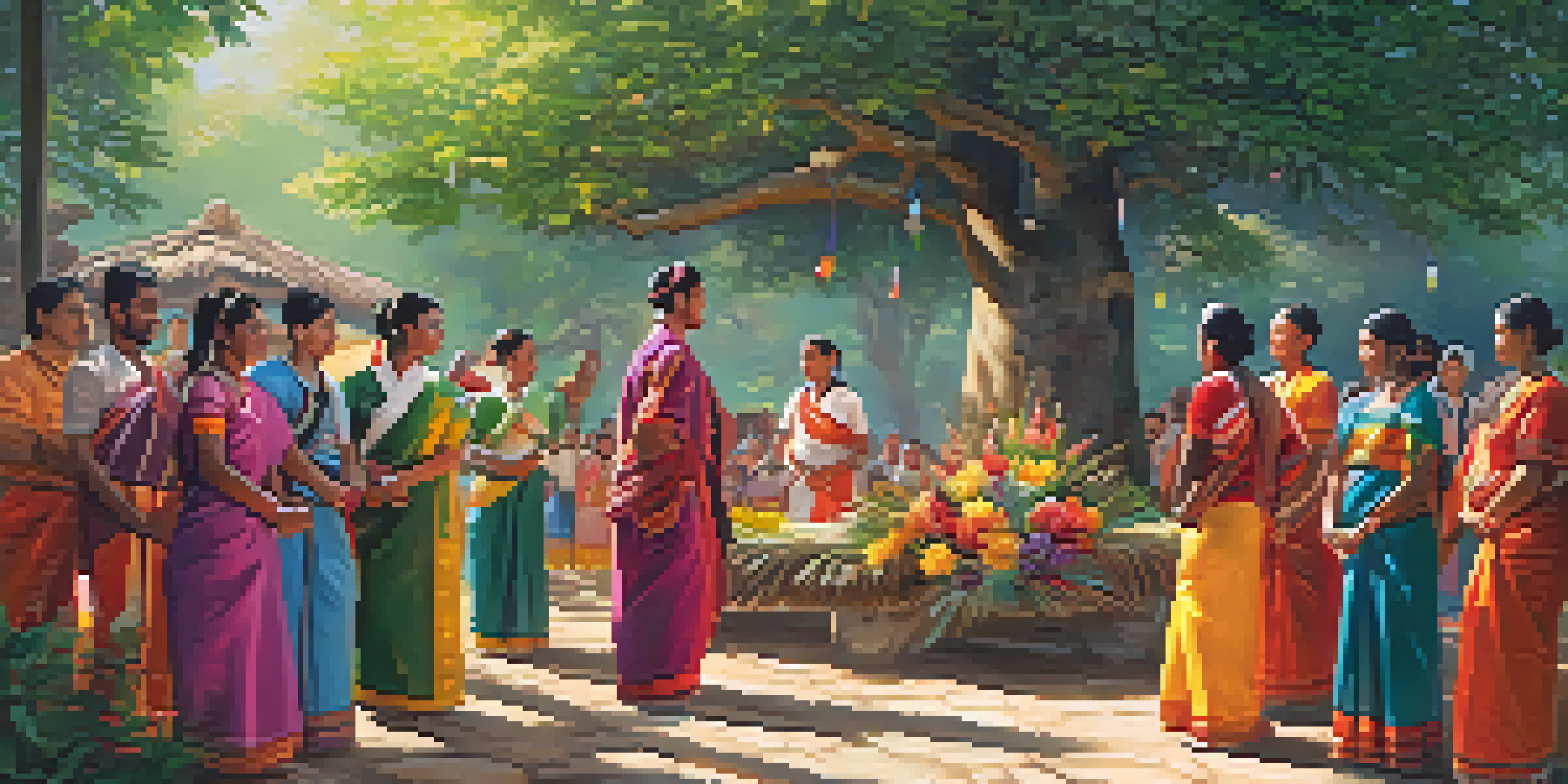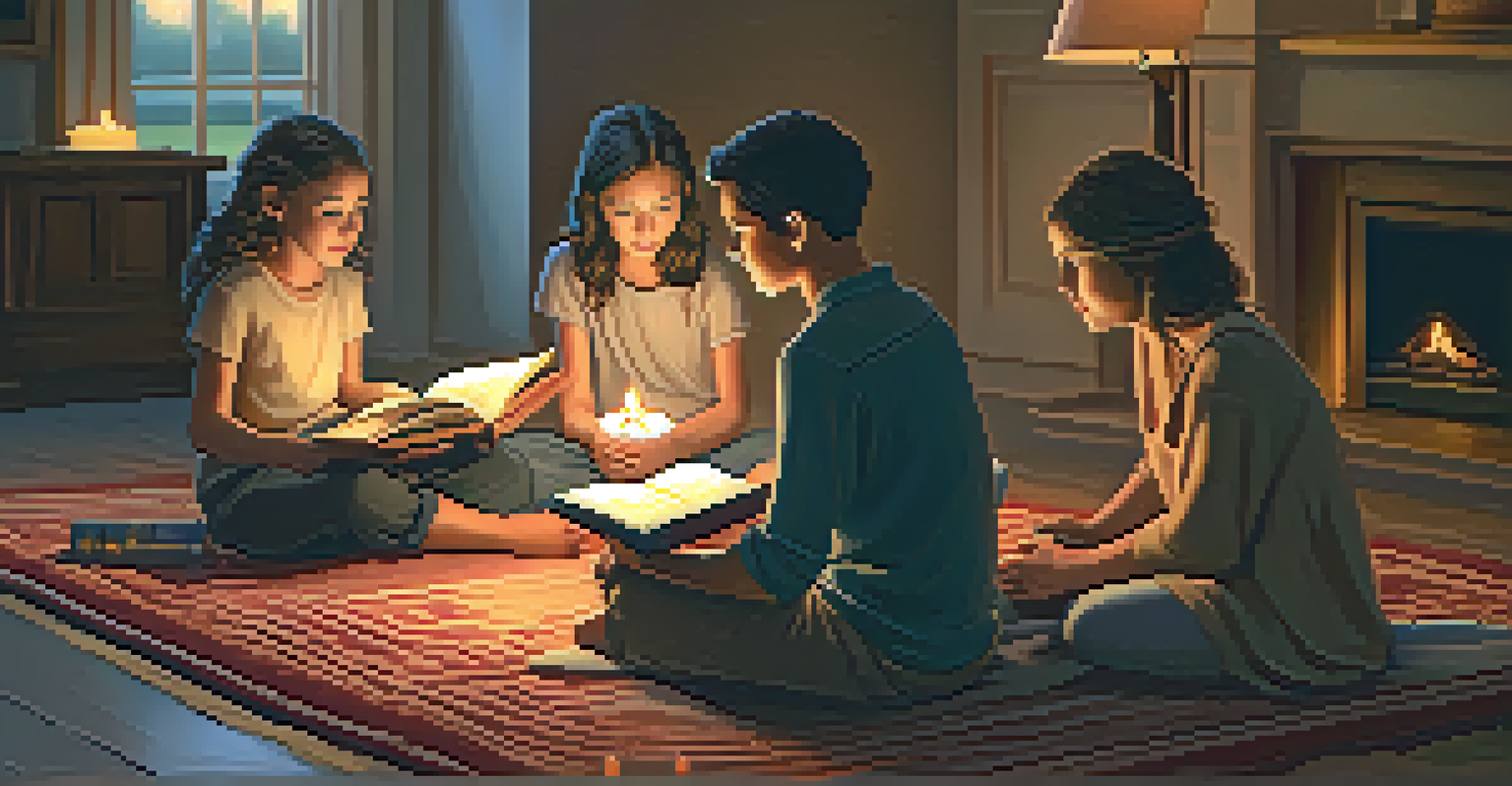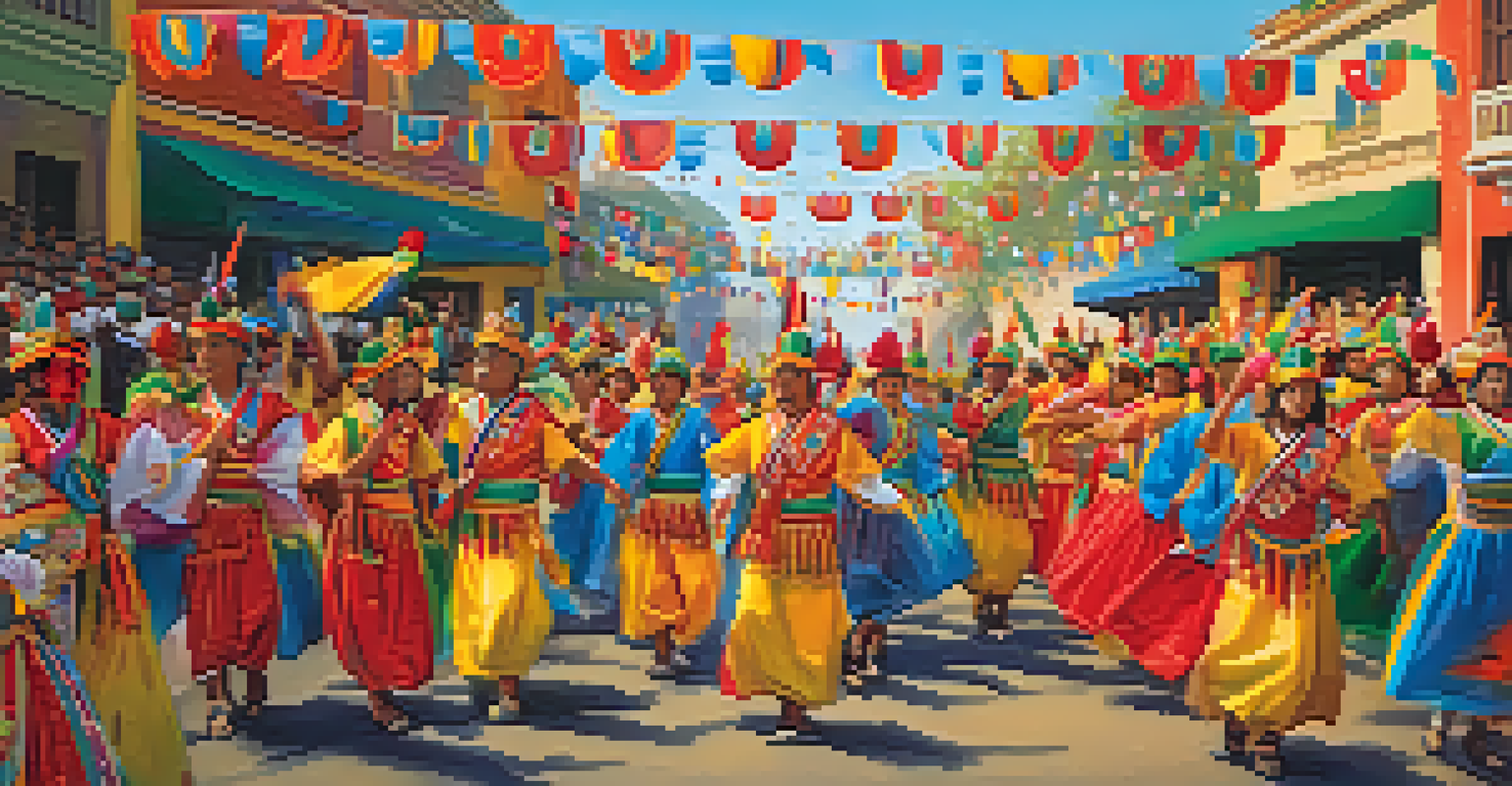The Role of Rituals in Preserving Cultural Heritage and Spirituality

Understanding Rituals and Their Importance
Rituals are structured activities that hold significance within a culture or religion. They often involve repeated actions and symbols that convey meaning, helping individuals connect with their heritage. Think of rituals as a bridge connecting past generations with the present, ensuring that cultural values and beliefs are passed down.
Rituals are the formulas by which harmony is restored.
These practices can range from daily routines, like morning prayers, to grand ceremonies, such as weddings or festivals. Each ritual tells a story, reflecting the unique identity of a community. By engaging in these rituals, people affirm their belonging and foster a sense of continuity.
Moreover, rituals can serve as a source of comfort, especially during times of transition or distress. They offer a predictable structure, allowing individuals to navigate life's challenges while remaining grounded in their cultural or spiritual roots.
Rituals as a Tool for Cultural Transmission
One of the primary roles of rituals is to facilitate the transmission of cultural knowledge and practices across generations. For instance, storytelling rituals can pass on folklore and historical events, enriching the younger generation's understanding of their heritage. This process often involves communal participation, reinforcing social bonds.

Rituals provide a framework for teaching values, ethics, and customs, ensuring that these essential elements are not lost. For example, rites of passage, such as coming-of-age ceremonies, mark significant life transitions while instilling core societal values. Through these experiences, individuals learn their roles within the community.
Rituals Connect Generations
Rituals serve as bridges between past and present, ensuring cultural values are transmitted across generations.
Additionally, engaging in rituals fosters a sense of pride and ownership over one’s culture. When people actively participate in these practices, they become custodians of their heritage, motivated to preserve and celebrate it.
Rituals and Spiritual Connection
Rituals often serve as a means for individuals to connect with the divine or a higher power. Through prayer, meditation, or ceremonial practices, participants seek spiritual fulfillment and guidance. This connection can be transformative, providing strength and clarity during life's challenges.
Rituals can be understood as the language of the sacred that gives us a sense of belonging.
In many cultures, rituals mark significant spiritual milestones, such as births, marriages, and deaths. These ceremonies help individuals navigate profound emotions, offering solace and support within a community context. By coming together, people reinforce their spiritual beliefs and strengthen their collective identity.
Moreover, rituals can enhance mindfulness and presence, allowing individuals to focus on their spirituality. Engaging in such practices encourages reflection and personal growth, making spirituality more accessible and relevant in daily life.
The Role of Rituals in Community Cohesion
Rituals play a crucial role in fostering a sense of belonging and community. By participating in shared rituals, individuals create strong bonds with one another, reinforcing social ties. This sense of unity is essential for the collective identity of a community.
Communal rituals, such as festivals and religious gatherings, provide opportunities for people to connect, celebrate, and support one another. These events often transcend individual differences, allowing participants to focus on shared beliefs and values. They create a space for collective joy and remembrance.
Rituals Foster Community Bonds
Shared rituals create strong social ties, enhancing a sense of belonging and collective identity within communities.
Furthermore, rituals can act as a catalyst for social change, bringing communities together to address common challenges. By uniting through shared practices, individuals can inspire action and foster resilience, ensuring the community thrives amid adversity.
Rituals in a Globalized World
In today's interconnected world, rituals face both challenges and opportunities. Globalization exposes cultures to new ideas and practices, which can enrich rituals or dilute their significance. While some rituals may evolve to incorporate diverse influences, others may be at risk of fading away.
However, globalization also allows for the sharing and revitalization of rituals across cultures. For instance, community members may adapt traditional practices to reflect contemporary values, ensuring their relevance. This blending of traditions can foster cross-cultural understanding and appreciation.
Ultimately, the challenge lies in balancing the preservation of unique cultural rituals while embracing the richness that global influences can bring. Communities must navigate this landscape thoughtfully to ensure their rituals remain meaningful and impactful.
The Impact of Technology on Rituals
Technology has significantly transformed how rituals are practiced and shared. Online platforms allow individuals to participate in spiritual gatherings or cultural events from anywhere in the world. This accessibility has broadened the scope of community engagement and participation.
However, the digital age also poses challenges, such as the potential loss of the intimate, in-person connections that rituals often foster. Virtual participation may lack the same emotional resonance as physical gatherings. It's essential to find ways to maintain meaningful connections, even in a digital format.
Technology Transforms Rituals
While technology broadens access to rituals, it also challenges the intimate connections traditionally fostered through in-person gatherings.
Despite these challenges, technology can also serve as a powerful tool for preserving and promoting rituals. By documenting and sharing practices online, communities can reach wider audiences, ensuring that their cultural heritage is celebrated and remembered.
Preserving Rituals for Future Generations
As we reflect on the importance of rituals in preserving cultural heritage and spirituality, it's vital to consider how we can pass these practices on to future generations. Education plays a key role in this process, as teaching young people about their cultural rituals fosters appreciation and respect.
Communities can also encourage active participation in rituals by involving younger members in their planning and execution. This hands-on approach not only instills a sense of ownership but also allows for the evolution of rituals in a way that resonates with new generations.

Ultimately, preserving rituals requires a collective effort to celebrate and honor cultural heritage while adapting to contemporary contexts. By nurturing these practices, we can ensure that they remain vibrant and relevant for years to come.